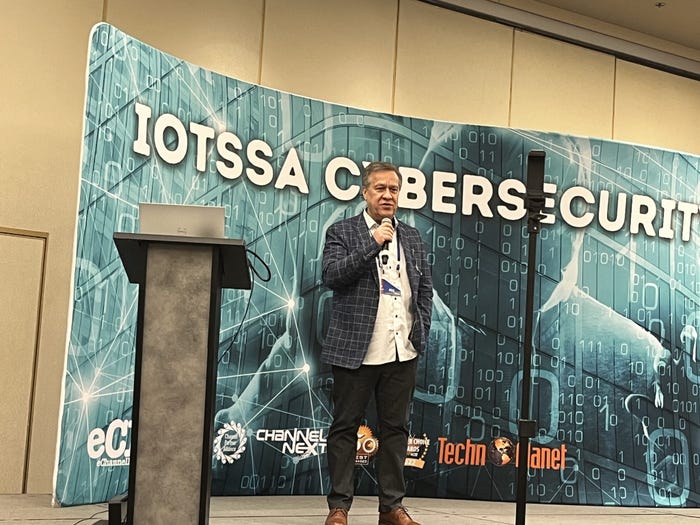MSPs should be addressing liability in their master service agreements.

TechnoPlanet is building a cybersecurity defense ecosystem of MSPs, MSSPs and security operation centers (SOCs) to help each other in the fight against cybercrime.
That’s according to Julian Lee (pictured above), TechnoPlanet’s CEO. He spoke to us about the ecosystem during last week’s Cybersecurity Expo in Phoenix. It’s an IoT Security Services Association powered by ChannelNext event.
“This ecosystem is something that is going to help all of the channel community to solve the cybersecurity problem,” Lee said. “It’s a big task, of course, and it’s a long journey and there’s many moving parts to it. So in the ecosystem itself, it’s a place where you go to find everything you need to help you solve the cybersecurity problem. And I like to underscore the word everything, because we are going to be baking everything into this one ecosystem exclusively for channel partners, MSPs, MSSPs and SOCs. They want to solve the cybersecurity problem for themselves and their customers. They want to either build it, scale it or outsource it. And we’re going to have parts for each of those depending on their maturity level.”
Cybersecurity Ecosystem to Address Biggest Cybersecurity Challenges
The No. 1 problem facing MSPs when it comes to cybersecurity is there’s “way too many products to figure out what you know and what to choose,” Lee said.
“There’s a lot of them out there, 4,300 companies,” he said. “We’re going to boil that down to 50. And the next step is how do we do this? How do we get our customers to invest more in cybersecurity? It’s going to help them to understand how to sell better and communicate the message better. We can’t afford to have cyberattacks 24/7. It’s just crazy. So we need to push it back down a bit. If you look at it simplistically, we’re looking to build an army within the cybersecurity channel that’s going to push back on the cybercriminals in an effective way with the force of an entire organization behind them with all the things they need to do that.”
Those who sign up for the ecosystem have access to a new marketplace dedicated to cybersecurity for MSPs, MSSPs and SOCs, Lee said.
“Even though this event is on this particular day in February, we don’t stop,” he said. “It’s 365 days a year that we are communicating with them from webinars to updates and content, to new product solutions, to podcasts, to everything in between. What (MSPs, MSSPs and SOCs) are taking back with them is a community that you can rely on 365 days a year. They can meet each other any time virtually. They can go back and meet at the events. There’s no limits so they can lean into each other.”
See our slideshow above for more from Cybersecurity Expo in Phoenix.
Want to contact the author directly about this story? Have ideas for a follow-up article? Email Edward Gately or connect with him on LinkedIn. |
Read more about:
MSPsAbout the Author(s)
You May Also Like


